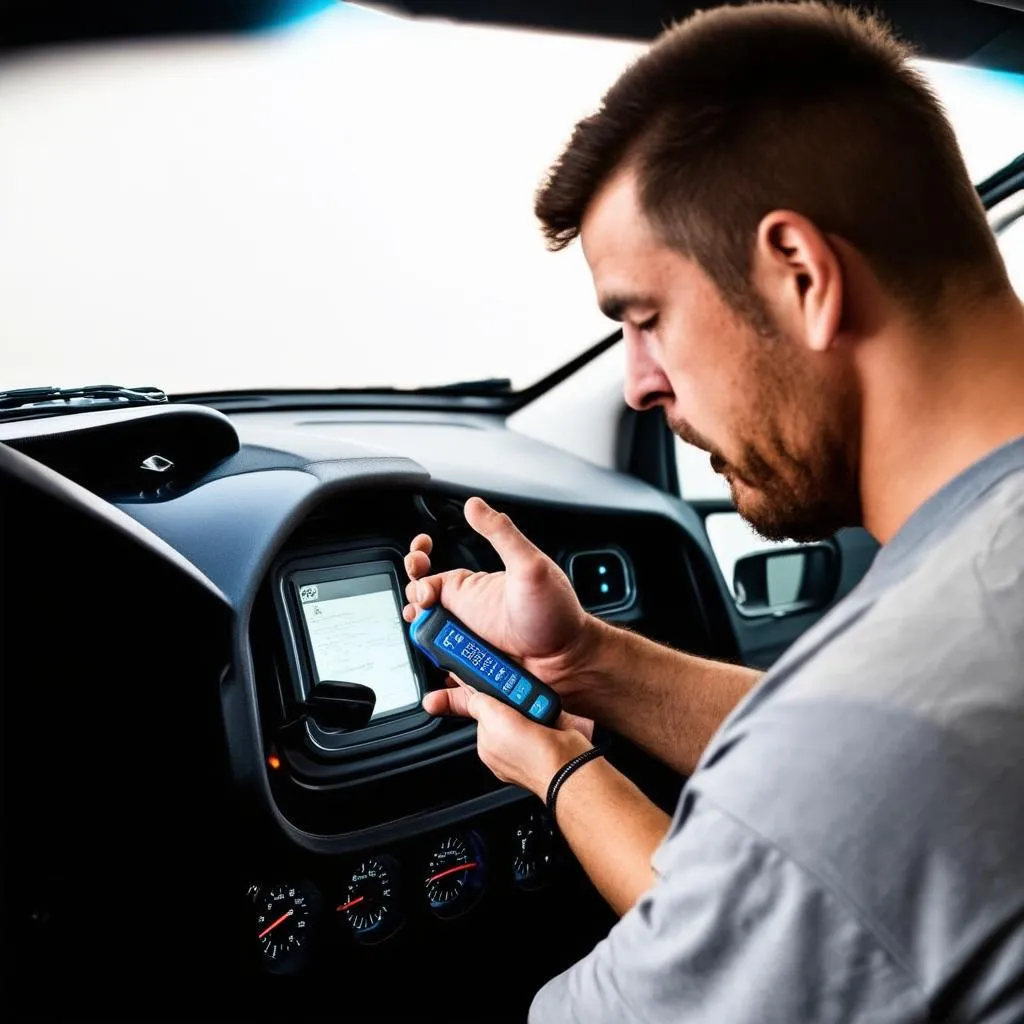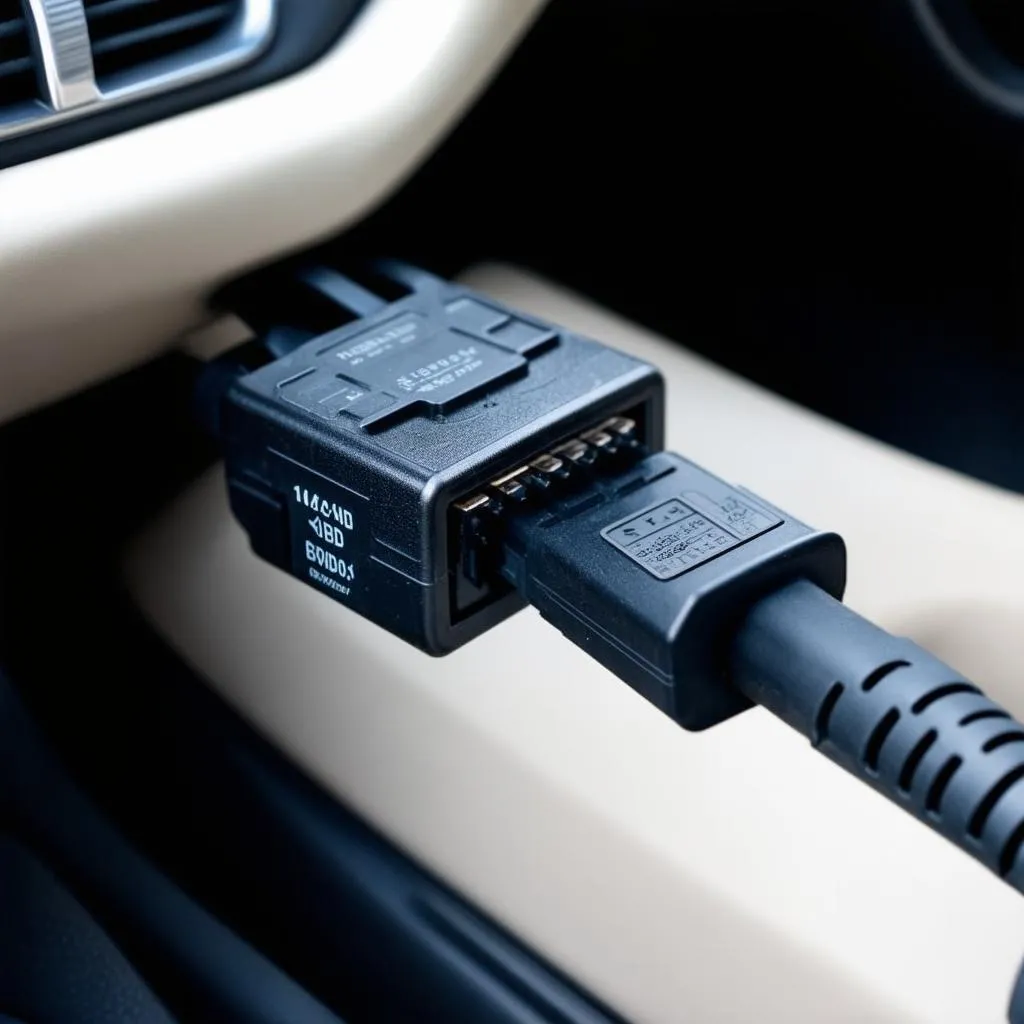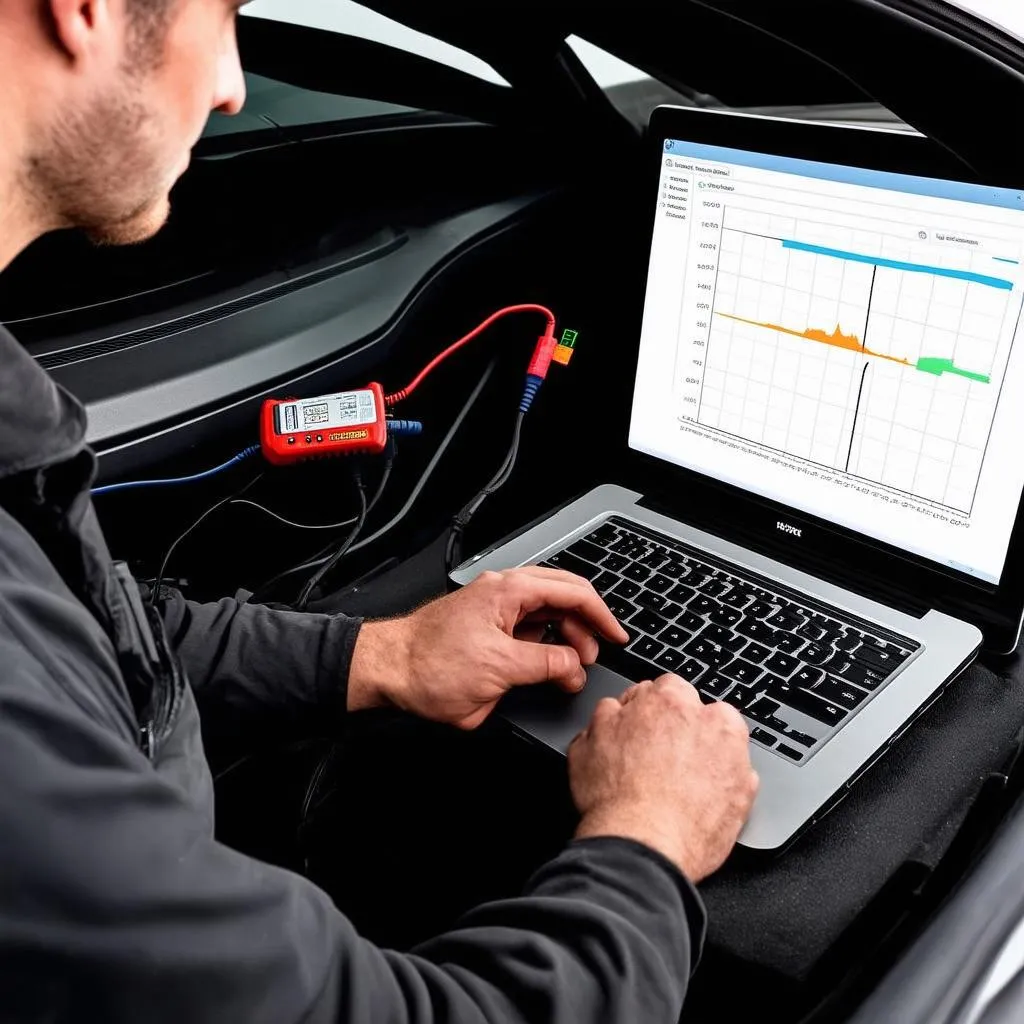Have you ever been in a situation where your car won’t start, and when you try to connect an OBD scanner, nothing happens? It’s a frustrating experience, and it can leave you stranded and wondering what’s wrong. In this article, we’ll explore the potential causes of this issue and guide you through troubleshooting steps.
Understanding the Issue
When you plug in an OBD scanner to your car and it fails to connect, it signifies a problem with the communication between the scanner and the car’s onboard computer. It’s like trying to talk to a friend over a broken phone line—you can’t get through.
Potential Causes of This Issue:
- Fused OBD Port: The OBD port is often fused for safety reasons. If the fuse is blown, the scanner won’t be able to get a power supply.
- Loose or Damaged Wiring: Worn or damaged wiring in the OBD port can prevent a connection.
- OBD Scanner Compatibility: Not all OBD scanners are compatible with all vehicles. Make sure your scanner supports your car’s model and year.
- Faulty OBD Scanner: The scanner itself might be malfunctioning. Try using a different scanner to rule out this possibility.
- Vehicle System Issues: Sometimes the car’s computer system might be experiencing problems that prevent communication with the scanner. This can be due to a number of factors, including a faulty battery, alternator problems, or even software glitches.
What to Do When Your Car Won’t Start With an OBD Connected
1. Check the Fuse:
- Locate the fuse box in your car (often under the hood or in the passenger compartment).
- Find the fuse associated with the OBD port (check your owner’s manual for the correct fuse).
- Use a fuse tester or visually inspect the fuse for any signs of damage.
- If the fuse is blown, replace it with a new fuse of the same amperage.
2. Inspect the OBD Port:
- Look for any signs of damage, corrosion, or loose wires.
- Carefully inspect the port itself.
- If you find any damage, consider having it repaired by a qualified mechanic.
3. Check OBD Scanner Compatibility:
- Verify that your scanner is compatible with your vehicle.
- Ensure that it supports the correct protocols and standards for your car’s year and model.
- If you’re unsure, consult the scanner’s manual or contact the manufacturer.
4. Test With Another OBD Scanner:
- Try using a different OBD scanner to see if the issue persists.
- This can help you determine whether the problem lies with the scanner or the vehicle.
5. Consider a Diagnostic Tool:
- If you’re comfortable with automotive technology, you can invest in a professional-grade diagnostic tool like a dealer-level scanner.
- These devices provide more in-depth access to your car’s systems and can help you identify the root cause of the problem.
6. Consult a Mechanic:
- If all else fails, or if you’re unsure about troubleshooting the issue, it’s best to consult a qualified mechanic.
- They have the knowledge and expertise to diagnose and repair complex automotive problems.
7. Reset the Battery Terminals:
- In some cases, simply disconnecting and reconnecting the battery terminals can reset the car’s computer system and resolve communication issues.
8. Check the Battery:
- A weak or failing battery can prevent the car from starting and also affect communication with the OBD scanner.
- If the battery is old, you may need to replace it.
9. Look for Warning Lights:
- Pay attention to any warning lights on your dashboard.
- These lights can provide valuable clues about potential issues with the vehicle’s systems.
10. Get Your Car Checked Regularly:
- Regular maintenance is crucial for keeping your car in good working order.
- Schedule regular checkups with a mechanic to catch problems early before they become major issues.
11. Connect with a Professional:
- If you’re struggling with the issue, don’t hesitate to reach out to a qualified mechanic.
- They can provide expert advice and guidance to help you resolve the problem quickly and effectively.
12. Understanding the OBD Port from a Technical Perspective
- The OBD (On-Board Diagnostics) port is a standardized connector found on most modern vehicles.
- It allows technicians and mechanics to communicate with the car’s onboard computer system.
- This communication allows for reading diagnostic trouble codes (DTCs), monitoring vehicle performance, and accessing other valuable information.
13. Seek Advice from Experienced Professionals:
- “In my experience, it’s crucial to address any OBD issues promptly,” says Dr. Thomas Miller, a renowned automotive engineer. “These problems can often indicate underlying issues that could escalate if ignored.”
- The “Automotive Diagnostic Systems” manual, a widely respected reference for mechanics, emphasizes the importance of addressing any communication errors with the OBD system.
14. Avoid These Common Mistakes:
- Don’t try to “fix” the OBD port yourself unless you’re a qualified mechanic.
- Avoid using cheap or unreliable scanners, as they may provide inaccurate or misleading readings.
- Don’t ignore any warning lights on your dashboard, as they could signal serious problems.
15. Seeking Further Help
- If you’re still having trouble with your car, don’t hesitate to reach out for help.
- Our team at TechCarUSA is committed to providing you with reliable information and expert assistance.
16. Relevant Articles from TechCarUSA:
- OBD Failed to Connect: Troubleshooting Guide
- OBD Scanner Not Connecting: Common Causes & Solutions
- OBD Scanner Not Working: Top 5 Reasons and How to Fix Them
17. FAQs:
-
Q: What happens when the OBD port is unplugged?
- A: Unplugging the OBD port may cause a loss of data and communication with the vehicle’s onboard computer system.
-
Q: Can I use a phone app to diagnose my car?
- A: Some phone apps can read basic information from the OBD port, but they may not provide as much detail or functionality as a professional-grade scanner.
-
Q: Why is my OBD scanner not picking up my car?
- A: This could be due to a number of factors, such as a faulty scanner, a problem with the car’s computer system, or incompatible protocols.
-
Q: Is there a difference between OBD and OBD2?
- A: OBD2 is the latest and most commonly used standard for vehicle diagnostics. OBD refers to the general concept of on-board diagnostics.
18. Call to Action:
- Need help with diagnosing your car’s electrical systems? Our team of experienced automotive technicians is available 24/7.
- Contact us on Whatsapp: +84767531508 for expert assistance.
19. Final Thoughts:
Don’t let a stubborn OBD port keep you stranded. By understanding the potential causes and troubleshooting steps, you can get back on the road quickly and safely. Remember to prioritize regular maintenance and consult with a professional if needed. Happy driving!
 OBD Port Issue
OBD Port Issue
 OBD Scanner
OBD Scanner
 Car Diagnostics
Car Diagnostics